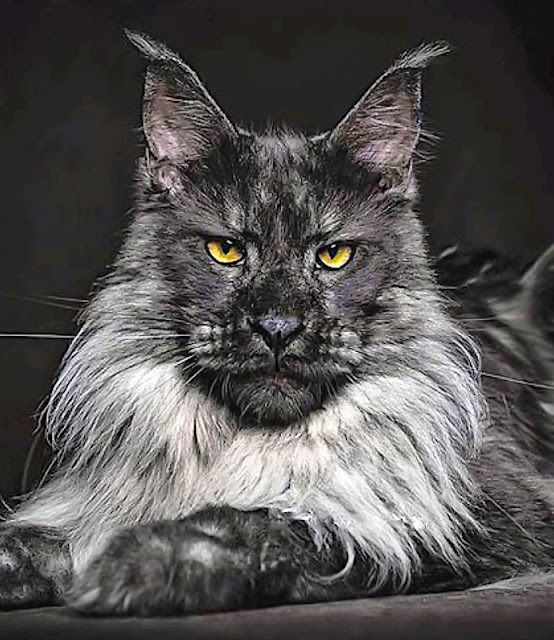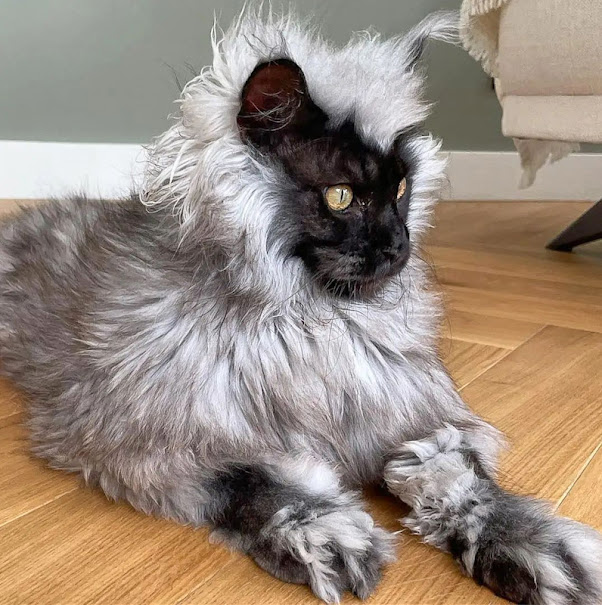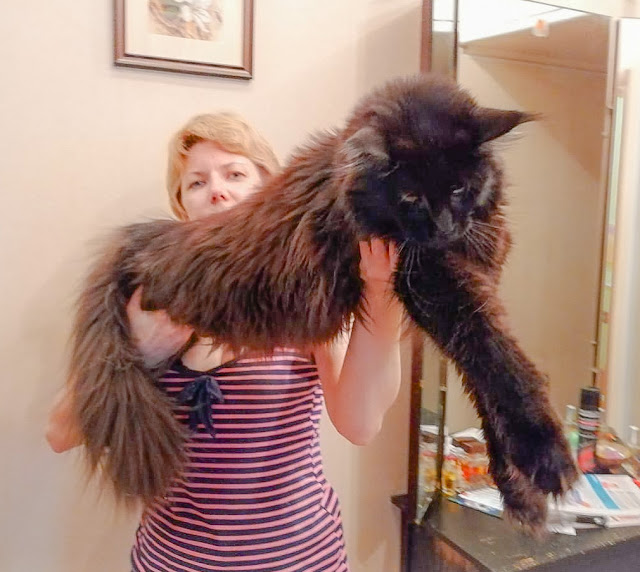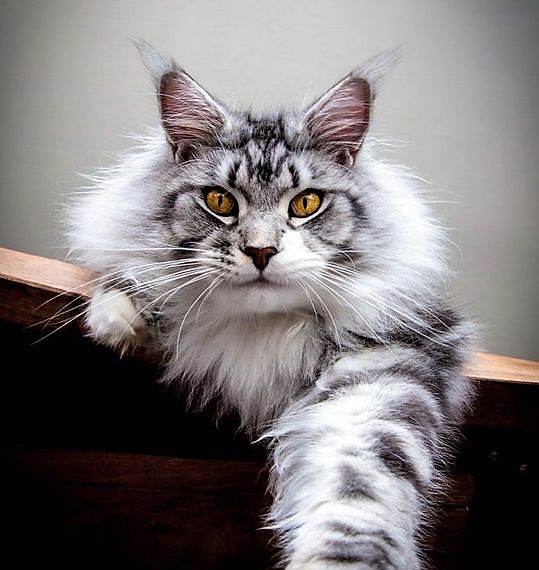Do Maine Coons like being brushed?
Conclusion: the answer to the question depends on several factors as it always does. An acceptance of being brushed does not necessarily come naturally to Maine Coons. Domestic cats naturally groom themselves to a good standard provided they are healthy and the fur is not too long. They spend over 10% of their time grooming which is about 2.5 hours per day according to Dr Fogle. I am not sure mine does that. Do you spend that much on your personal hygiene! 😉. I don't. Nowhere near.
Maine Coons need brushing and/or combing regularly to avoid matting and of course to check for ectoparasites such as fleas. It's all part of the routine of a cat caregiver and particularly important for semi-longhaired and longhaired cats as we all know. But do they like it? Or do they hate it?
It is a bit of a shame that Maine Coons need help in grooming. It is indicative of a failure in breeding if we are honest. I don't want to be too serious about this but the original Maine Coons, those barn cats of yesteryear, probably had shorter coats that were easier to manage.
This impressive cat breed is not ideally suited to warm climates. It depends on air conditioning in parts of the US! Anyway...
I'm going to refer to a study which may provide an insight into how Maine Coon cats react to being brushed. I'm also going to refer to a way to avoid this kind of reaction.
 |
| Do Maine Coons like being brushed? It depends as usual. Image: in the public domain as assessed. |
Study
Not long ago, in June 2020, a group of scientists evaluated Maine Coon cat behaviour during three different management situations at their home. They evaluated the behaviour of 10 Maine Coons, four males and six females ranging in age from 1 to 13 years. They all lived with the same person and were therefore managed under the same background conditions.
They checked on their reactions to three different circumstances: waiting for food, being isolated in an unknown environment and being brushed.
They videoed all the interactions and analysed them. I will quote the scientists regarding the cats' reaction to being brushed:
"Withdrawal, passive interactions, aggressive behaviors, facial discomfort, and purring characterized brushing."
Well, I'm surprised to read it but the clear indication there is that the cats didn't like it. Perhaps they even strongly disliked it. But this only applies to 10 cats. Hardly a big sample. However, they did purr sometimes.
Although people understand purring as a sign of contentment it isn't solely about that. It is really a request seeking friendship under stressful circumstances and a signal to an owner saying thank you for friendship received.
But it does tell us one thing namely that we can't assume that Maine Coon cats will enjoy being groomed/brushed by their caregiver. Of course, it depends upon how they are brushed and more importantly it depends upon how habituated/acclimatized to being brushed the cats are.
All the experts make it clear that if you want to ensure that your Maine Coon cat accepts and even enjoys being brushed this form of cat caregiving should first take place when they are kittens and regularly thereafter. It will certainly help particularly if accompanied by plenty of gentle loving and perhaps a treat.
Food and Isolation
In respect of the other situations, when they waited for food they engaged in yawning, lip licking, swallowing and salivation! Hardly surprising.
When there are put into isolation they explored the area, adopted "worried positions", scratched and hid. This is indicative of an initial inquisitiveness which drifted into slight anxiety I suspect and then a concern about been removed from the strange environment in which they were isolated.
Behavior during brushing was different
To further quote the scientists:
"Our principal finding is that cats showed different behavioral patterns in the three situations and, in particular, their behavior during brushing was very different than in the two other situations. It can be hypothesized that these different behavioral responses are due to the different emotional states elicited by each of the three challenging and potentially stressful situations. "










Comments
Post a Comment
Please share your Maine Coon experiences.